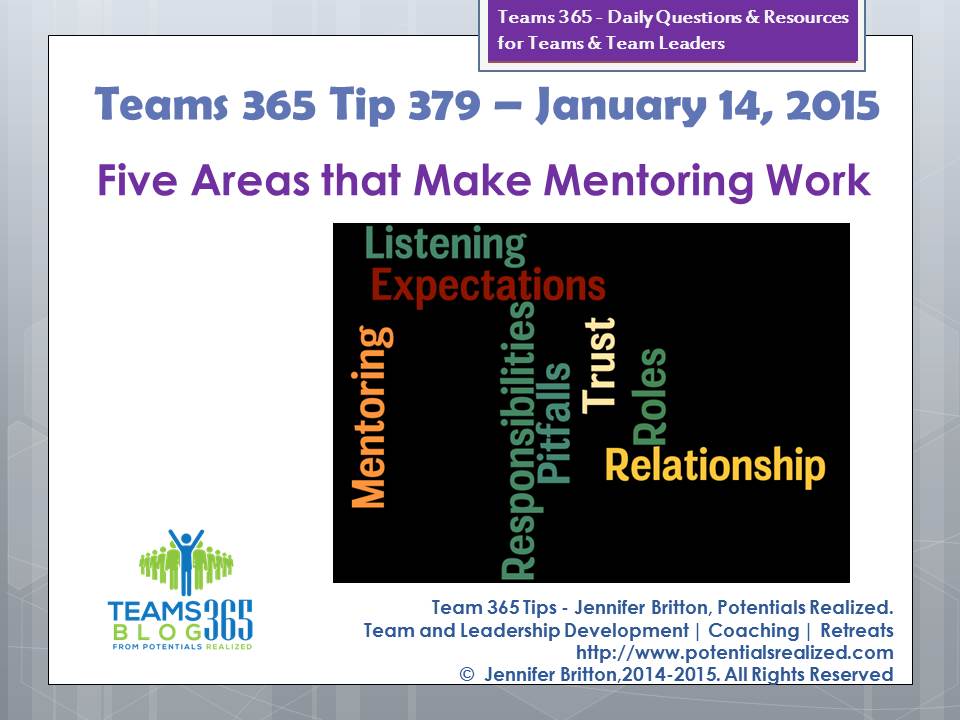1. The relationship in mentoring is critical - just as is being seen in a formal coaching relationships, the fit between mentors and men tees is also critical to success.
Questions to consider: As you go about your pairing, what is important from the proteges perspective - a certain career background? Technical expertise? Certain competencies which have been developed? Other?
2. Clear roles and responsibilities: On a practical level pairing is cticial as is ensuring everyone is on the same page around the roles and responsibilities of mentoring. It can be very useful to provide both mentors and mentees with a training session at the kick off of any mentoring process. Reviewing who is responsible for initiating the sessions, creating the focus and follow-though can go a long way in getting the relationship moving effectively.
Questions to consider: Who is responsible for what? How will you ensure you have created shared expectations? (Note: first conversations are critical for tis).
3. What research continues to point to is the importance of trust. In a mentoring relationship this is two way. First, the mentor will be sharing key elements and insights based on their own career. Dependent on the industry you work wtihin they may be sharing key elements. Creating confidentiality agreements at the start of mentoring is an important step.
Trust plays out in other ways such as follow-through around meetings and agreements made, preparation on the part of the mentee and mentor.
Question to consider: What is going to build trust in your mentoring relationship.
4. Listening is key - Mentoring should be a two way street and it is important that the mentor gets as much out of the experience as the mentee. In creating mentoring relationships that really work, listening is key on the part of both mentor and mentee. Mentors should be listening for what the mentee is really wanting and needing from the relationship. Is it the "war stories" of your past, encouragement, resources?
Likewise, it is important for mentees to make the most of the mentoring process as well, and listening to what the mentor has to offer. coming prepared and asking questions will also help to maximize the mentoring experience.
5. Shared expectations - Going hand in hand with the clear roles and responsibilities are creating shared expectations. Where challenges and pitfalls emerge around mentoring is often in this area. What is expected in terms of numbers of meetings? Frequency? Length? Where will you be meeting? When? Who will be footing the bill if you go out to eat. These are all areas I encourage mentors and proteges to cover in their first meeting.
What other components are going to make your mentoring experience the most positive and impactful it can be?
Looking for more resources to support your program? Contact me to discuss training and other support resources we offer to the mentoring process through Potentials Realized and the Mentor RoadMap(TM).
Best,
Jennifer
Jennifer Britton, MES, CPT, PCC
Potentials Realized: Coaching | Teamwork | Leadership
Supporting Team Leaders to do their best work, one conversation at a time
Author of From One to Many: Best Practices for Team and Group Coaching (Jossey-Bass, 2013)
Authorized Partner of Everything DiSC and the Five Behaviors of a Cohesive Team

 RSS Feed
RSS Feed





